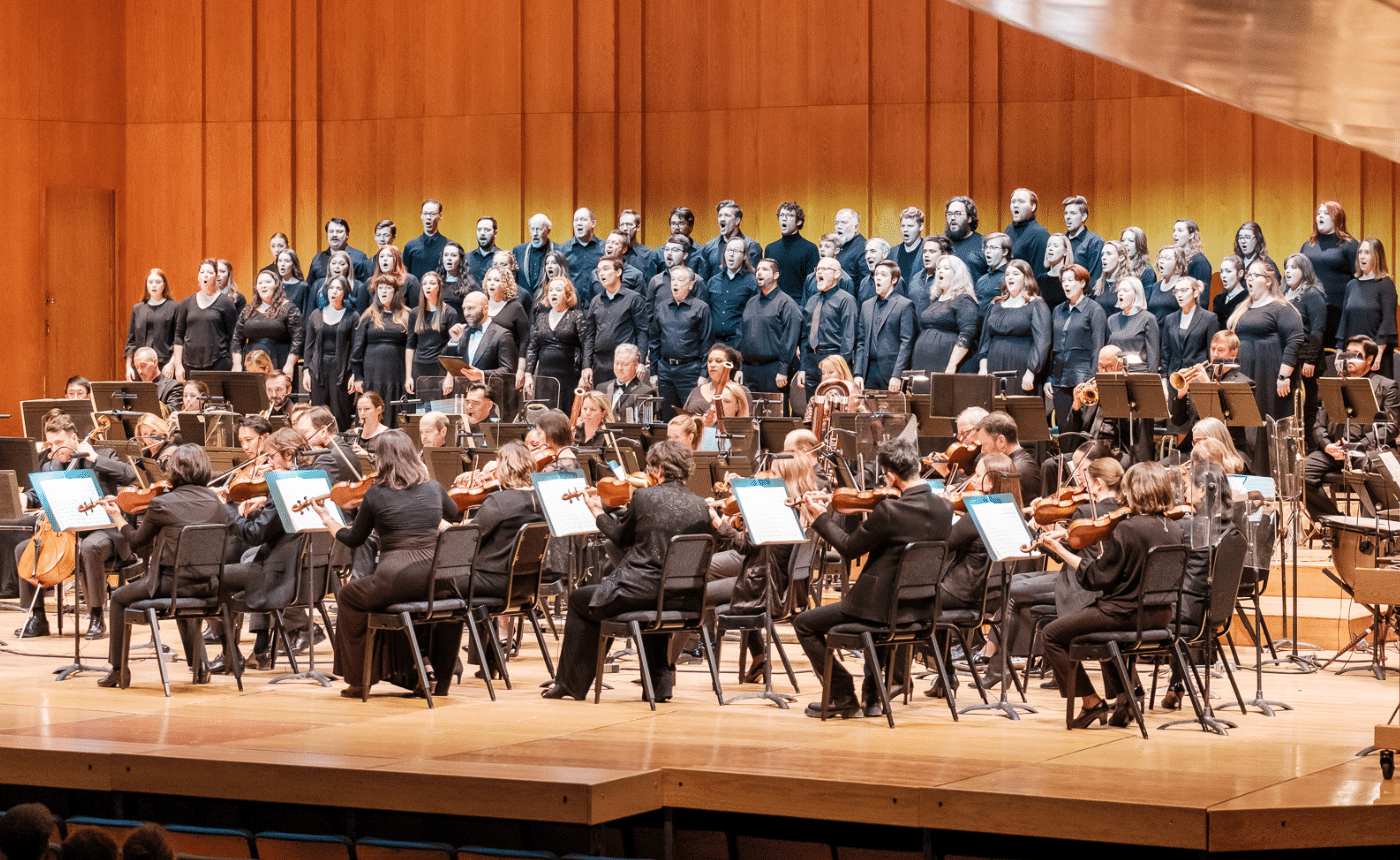Schoenberg – Accompaniment to a Cinematographic Scene
Begleitungsmusik zu einer Lichtspielscene, op 34
by Jeff Counts
Instrumentation: flute/piccolo, oboes, 2 clarinets, bassoon, 2 horns, 2 trumpets, trombone, timpani, xylophone, glockenspiel, snare drum, tambourine, cymbals, triangle, tam-tam, bass drum, piano, strings
Duration: 9 minutes.
THE COMPOSER – ARNOLD SCHOENBERG (1874-1951) – In 1930, Schoenberg was midway through his third and last stint in Berlin. His position at the Akademie der Künste gave him a great deal of control over his teaching life, including a flexible schedule that allowed for an increase in his output as a composer. Many important works, large and small, date from this time, including Moses und Aron, the Third Quartet and the Variations for Orchestra.
THE MUSIC – Notable among these scores was an interesting commission opportunity in 1929, interesting not only because of its obvious uniqueness but also because of Schoenberg’s particular bent as an artist. The commissioner was the Heinrichshofen Verlag (publishing house). Heinrichshofen specialized in silent film music and the base concept of such an endeavor ran counter to Schoenberg’s view of art as an esoteric experience that was not fit for mass consumption (“If it is art, it is not for all, and if it is for all, is in not art”). He was not, then or ever, inclined to see his music bound by the formal framework of another artist’s vision. For Schoenberg, creative freedom was sacrosanct and his response to the commission was uncompromising. The title is misleading since the music is certainly not an “accompaniment” and the “cinematographic scene” it references did not actually exist. Schoenberg built his brief symphonic poem on the conceptual emotions contained in the work’s subtitle, “threatening danger, fear, catastrophe.” Whatever “scene” is implied by the piece is resultant and fully imaginary, not the assumed opposite. Schoenberg’s resolution to the intellectual conflict of his assignment makes it intriguing to consider the fact that when he left Europe a few years later for America, he settled eventually (and permanently) in Los Angeles. He was approached one more time by the film industry to score The Good Earth (1937) but in Hollywood, his rigid standards met with far greater resistance.
THE WORLD – The Vietnamese Communist Party was founded in 1930, as was the Communist Party of Panama. 1930 was also the year of the first FIFA World Cup and the crowning of Haile Selassie as King of Ethiopia.
THE CONNECTION – Like all of the Schoenberg works during this two-week festival, op. 34 is enjoying its Utah Symphony premiere on these concerts.











